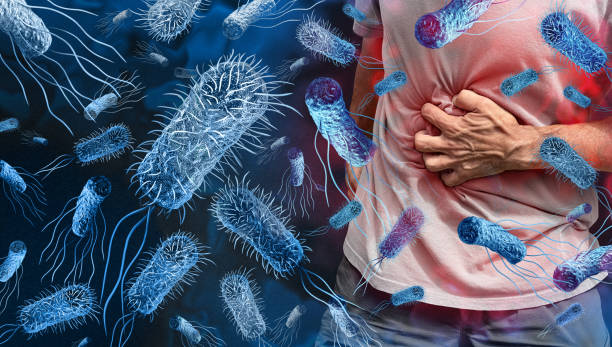
By Dr. Alexandra Shustina DO
The microbiome is the population of organisms (bacteria, viruses, and fungi) which live inside and outside of our bodies. Did you know there are ten times more bacterial cells in and on our bodies than human cells? How can this be? Bacterial cells are much smaller than human cells in size and even though they outnumber us we still look human (phew). We have trillions of bacterial cells in our gut which play vital role in our overall health. They can contribute to weight gain, heart disease, digestive disorders, mind fog, and depression. Alternatively, a healthy bacterial population can help us maintain a healthy weight, a clear mind and a great mood.
It is hard to believe that bacterial cells, the simplest of all cells can be so intelligent and so powerful. Studies have shown that “good bacteria” help synthesize serotonin (1). Serotonin is the neurotransmitter or brain chemical which keeps us happy and fulfilled. In fact, many of the powerful anti-depressant medications also target the serotonin system. Over 90% of the bodys serotonin is produced in the gut and the microbiome is a big contributor to the gut brain connection. A study showed that intake of fermented milk, rich in healthy bacteria, caused brain changes as seen on an MRI (2). Another study showed that supplementing depressed rats with a probiotic successfully treated their depression (3).
Inflammatory Bowel disease such as Crohns disease and Ulcerative Colitis are associated with abnormal bacterial population in the gut, known as “dysbiosis (4).” Probiotics can be effective therapy in Ulcerative colitis (5) highlighting the importance of the gut bacteria in chronic illness. Fecal microbiata transplantation or FMT is basically a transplant of stool from a healthy donor to a recipient via “poop pills” or enemas. It sounds unsavory but it happens to be effective in treating Ulcerative Colitis again highlighting the importance of the gut microbiome (6).
How can we alter our microbiome to optimize health and natural weight loss? The food that we eat nourishes the bacterial populations in the gut. Healthy, natural food feeds the good bugs, the ones we want in our colon in large numbers. Processed food feeds the bad guys. Even our thoughts can alter our bacterial populations. Stress management is key in overall health and maintaining a healthy microbiome. Antibiotics are known killers of good and bad bacteria. Use them sparingly and only when needed. Remember most colds are viral and antibiotics are not helpful.
Probiotics can be useful. Fermented foods are a source of prebiotics and probiotics. Prebiotics are the fiber rich source of food for the bacteria. Fermented foods are a reliable and optimal way to grow the good populations of bacteria in the gut. Many foods can be fermented from sourdough bread to kefir and sauerkraut and miso. The worlds best natural source of probiotics is of course breast milk. Children who are breastfed have a more robust and diverse microbiome than those who are bottle fed. We can even improve our microbiome by having a pet and spending time in nature exposed to the “uncleanliness” which can help our health.
Let us help. CALL NOW